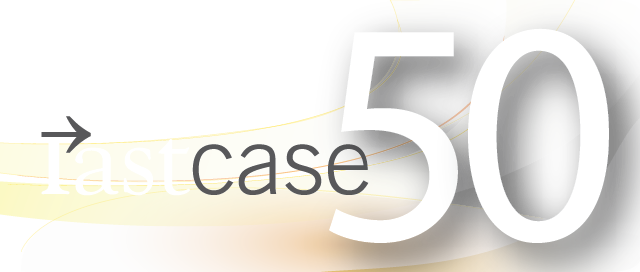
Click here to see the Fastcase 50 Class of 2023!
Honoring the law’s smartest, most courageous innovators, techies, visionaries, & leaders. Lawyer or nonlawyer, techie or nontechie, anyone is eligible.
Created in 2011, each year the Fastcase 50 award honors a diverse group of lawyers, legal technologists, policymakers, judges, law librarians, bar association executives, and people from all walks of life. In many cases, honorees are well known, but in many others, the award recognizes people who have made important, but unheralded contributions.
“When we look back at the pandemic era, we will see it as a great reset in our attitudes and assumptions about legal services,” said Fastcase CEO Ed Walters. “Even if they have had to spend more time on Zoom this year than they had planned, the 2022 class of honorees is making profound changes for the next generation of law. We celebrate these impactful advocates and inspiring innovators who are shaping the future under incredibly challenging circumstances.”
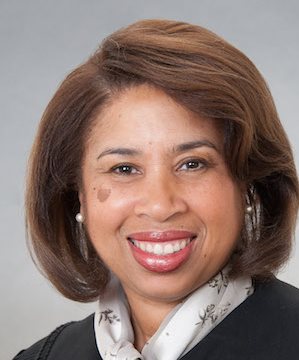 Hon. Anna Blackburne-Rigsby
Chief Judge, District of Columbia Court of Appeals
Hon. Anna Blackburne-Rigsby
Chief Judge, District of Columbia Court of AppealsJudge Anna Blackburne-Rigsby, who was first selected to serve in the DC courts by President Clinton in 1995, now serves as the Chief Judge of the DC Court of Appeals. She was awarded the ABA's "Herman Sweatt's Champion of Justice" award and the Women's Bar Association of DC's "2014 Star of the Bar Award." During a summer that shone a harsh light on systemic racism, Chief Judge Blackburne-Rigsby challenged judges and court staff to continuously question programs and procedures to ensure they are treating the community fairly, noting that "our courts have played an important role throughout history in overturning discrimination and unjust laws. Our courts [. . .] continue to play an important role in ensuring access to justice and fairness for all who come before our courts."
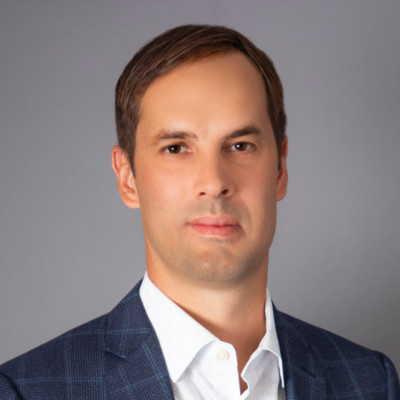 Josh Blandi
CEO and Co-Founder, UniCourt
Josh Blandi
CEO and Co-Founder, UniCourt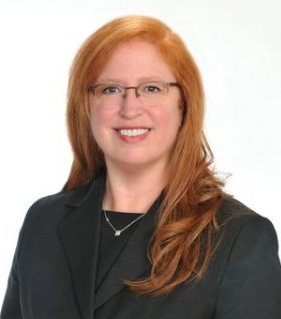 Cynthia Brown
Senior Director of Research Services, Littler Mendelson
Cynthia Brown
Senior Director of Research Services, Littler MendelsonIt's no overstatement to say Cynthia Brown is the epitome of a forward-thinking librarian leader in BigLaw's ever-evolving push to stay ahead of research and knowledge management technology. As Senior Director of Research Services at Littler Mendelson, Cynthia's impressive track record includes starting the firm's legislative tracking project, as well as a digital "Knowledge Desk" that helps the firm's many attorneys easily interface with expert librarians and the vast knowledge management resources at Littler's disposal. In response to COVID-19 Cynthia and her team pivoted to develop a vast array of constantly-updated and public-facing employer fact sheets that have been used by businesses across the country. Cynthia has demonstrated that legal services can be more than billable hours, and that information professionals in the firm can create new, data-driven legal services for clients
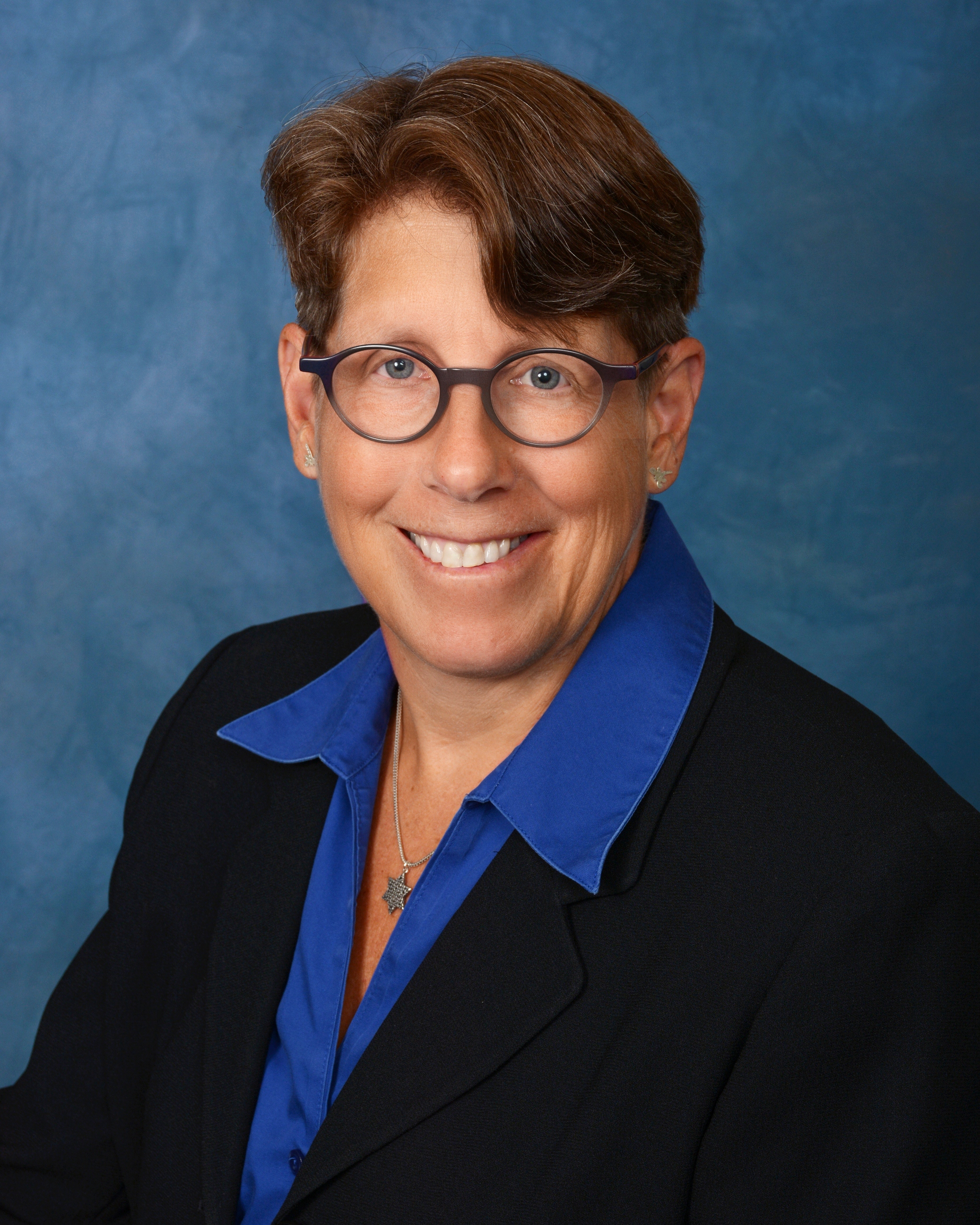 Tiela Chalmers
CEO and General Counsel, Alameda County Bar Association
Tiela Chalmers
CEO and General Counsel, Alameda County Bar AssociationTiela Chalmers has spent her career engaged in providing free legal services for clients with low incomes. She worked with the Bar Association of San Francisco's Volunteer Legal Services Program for 25 years, 14 of them as the Executive Director. Tiela left that position in 2011, but continued her work to help provide pro bono services and advance access to justice by becoming a consultant for legal aid programs and non-profits, including national organizations. Tiela became CEO of the Alameda County Bar Association in 2014, where she has continued to help other lawyers participate in pro bono work and give back to their communities. She has also presented workshops to law firms and other organizations, as well as serving on the board of Pro Bono Net, offering guidance about how to best serve low income populations.
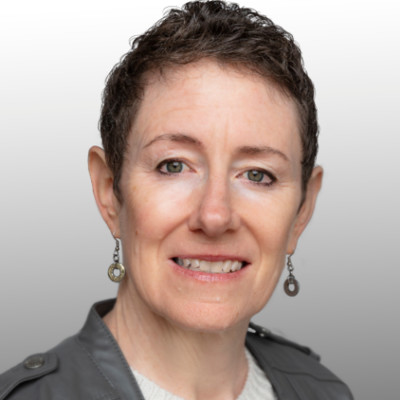 Lisa Colpoys
Program Director, Institute for the Future of Law Practice
Lisa Colpoys
Program Director, Institute for the Future of Law PracticeLisa Colpoys is shaping the future of law by educating early law students on the latest techniques of modern practice. She serves as Program Director of the Institute of the Future of Law Practice (IFLP), an organization designed to help lawyers adapt to a changing legal marketplace, where clients' expectations for their counsel are frequently evolving. Lisa emerged from the Tech Lawyer Accelerator program at the University of Colorado School of Law, which was co-founded by some of the most innovative thinkers in law practice. Lisa came to IFLP after 17 years as the Executive Director of Illinois Legal Aid Online, and brought a critical interest in public-sector improvements to IFLP's perspective. Under her leadership, dozens of employers and law schools have integrated IFLP into their programs, driving innovation from the first moment that prospective lawyers are exposed to the challenges of law practice management.
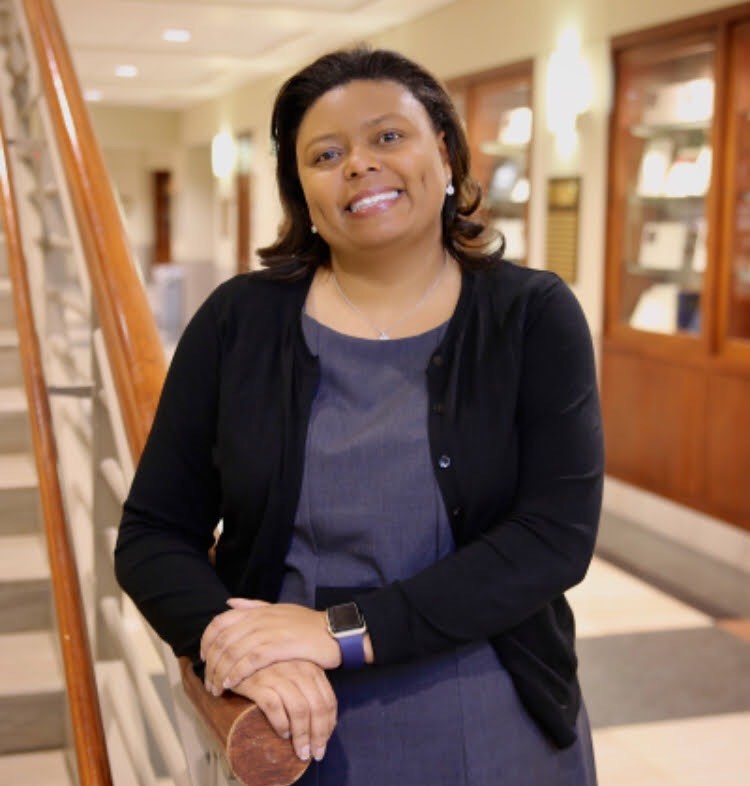 Michelle Cosby
Director of the Law Library and Associate Professor of Law, Temple University Beasley School of Law
Michelle Cosby
Director of the Law Library and Associate Professor of Law, Temple University Beasley School of LawMichelle Cosby is the Director of the Law Library at Temple University's Beasley School of Law, as well as an Associate Professor of Law, and the 2019-2020 President of the American Association of Law Libraries (AALL). Since the beginning of the COVID-19 pandemic, Michelle has diligently guided the AALL - she actively communicated with members as the pandemic progressed, and frequently spoke with many members individually to discuss the AALL's future. In addition, she led the executive board through the cancellation of its in-person New Orleans conference, and coordinated the first ever virtual conference of the AALL annual meeting. Michelle was able to accomplish it all while still teaching and guiding her Temple University students through this tumultuous period in American life and academia. Michelle's AALL presidential term is the culmination of years of service within AALL, including a turn as chair of AALL's Black Caucus. Among her activities as AALL President has been testimony before the Judiciary Committee of the United States House of Representatives on public access to court materials. Despite the upset of the pandemic, Michelle has been able to maintain the emphasis she placed at the beginning of her term on technology education for the AALL membership: "As president, I look forward to making sure our members have access to a wealth of educational resources and tools that aid in maximizing their use of technology."
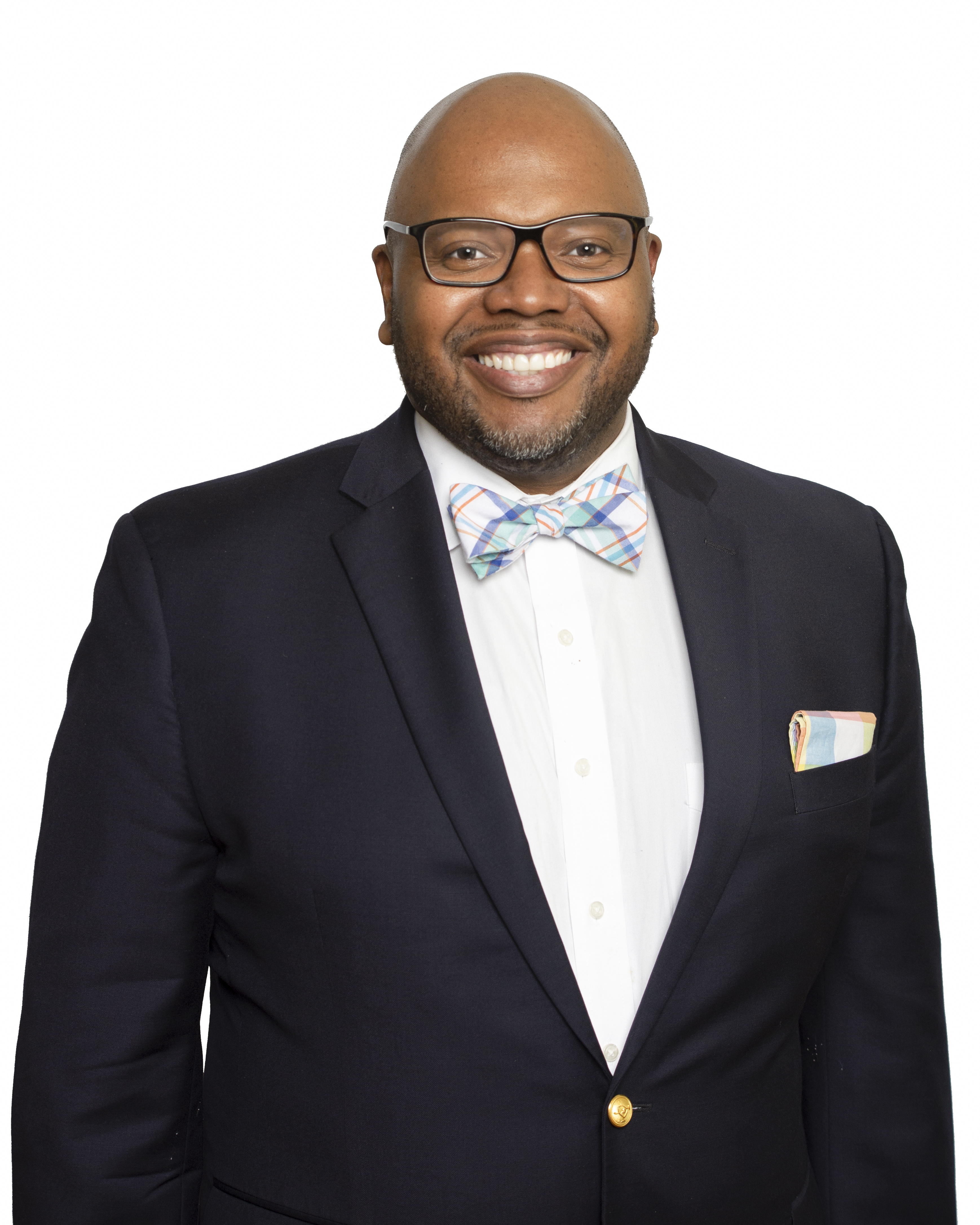 Andre Davison
Research Technology Manager, Blank Rome LLP
Andre Davison
Research Technology Manager, Blank Rome LLPIf we have finally come to the realization that our colleagues with superior technical skills can also be colleagues with exceptional interpersonal qualities, it is in large part because of people like Andre Davison. Andre is the Research Technology Manager at Blank Rome LLP's Houston location. In that role, he has introduced and maintained information resources, both purchased and internally developed, especially to the firm's IP practice. In 2019 Andre was honored as the winner of the Third Annual American Association of Law Libraries (AALL) Tournament for his project on "Seamless Access to Secondary Sources." Beyond technology, Andre is active in the area of diversity and inclusion within Blank Rome, as evidenced by his selection for the firm's prestigious Honorable Nathaniel R. Jones Diversity Award. He was recently elected Vice Chair/Chair-Elect of the newly constituted Black Law Librarians Special Interest Section of AALL. On a broader scale, Andre has generously served as President of the Houston Area Law Librarians (HALL) for the 2019-2020 year, and is a current member of the Executive Board of AALL's Private Law Librarians and Information Professionals (PLLIP) Special Interest Section. The legal information and wider world are both better off because of those who build, lead, and serve like Andre.
 Dave DiCicco
Senior Director of Product Planning, LexisNexis
Dave DiCicco
Senior Director of Product Planning, LexisNexisAs the Lexis for Microsoft Office product leader carrying around the 2016 CODiE Award for Best Solution for Integrating Content into Workflow, and winner of the National Law Journal's Best Table of Authorities award for an unprecedented six years in a row, you might mistake Dave DiCicco for a die-hard Yankee fan. No! In spite of living in Cleveland, or because of it, Dave remains a loyal Red Sox fan and long time LexisNexis team member, dating back to his last semester at University of Dayton School of Law, and extending from his early days as a software test engineer to currently working with customers to develop LexisNexis API solutions. Meeting with clients to develop user stories and working with the Lexis tech and sales teams puts Dave right in the middle of the transformation of APIs as the next generation of research information solutions.
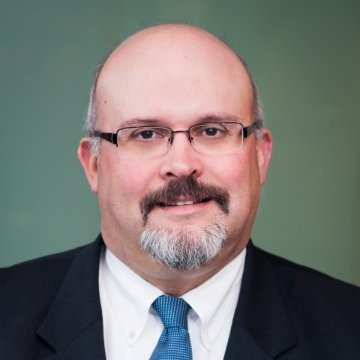 James Dimos (In Memoriam)
Associate Executive Director and General Counsel, American Bar Association
James Dimos (In Memoriam)
Associate Executive Director and General Counsel, American Bar AssociationWhen the Deputy Executive Director job became available at the American Bar Association (ABA), Jim Dimos jumped at the opportunity. After serving as the President of the Indiana Bar Association, Jim said that leading bar associations was sort of his professional hobby, so the leadership job was a perfect fit. "I couldn't think of a job that was better suited for my interest at this point of my career," he told The Indiana Lawyer. "I've enjoyed the practice of law and I've done it for 30 years now in the same place. It was going to take something very special to get me to change that." As second-in-command at the ABA, Jim was responsible for legal education, membership, admission to the bar, and the Center on Public Interest Law. Jim Dimos suffered a heart attack and passed away on August 5, 2020.
 Ona Alston Dosunmu
Executive Director, California Lawyers Association
Ona Alston Dosunmu
Executive Director, California Lawyers AssociationOna Alston Dosunmu is building one of the largest bar associations in America. Only a few years after the State Bar of California split into a regulatory bar (the State Bar of California) and a voluntary membership organization (the California Lawyers Association), Ona is charged with building an association that will compel California's more than 200,000 attorneys to join. With a Georgetown Law J.D., an M.A. in Sociology from Howard University, and years of experience at the Children's Law Center, the Association of Corporate Counsel, and as General Counsel and Vice President for the celebrated Brookings Institution for sixteen years, Ona draws from a broad range of experiences. Ona has described her mission as creating, "an organizational culture of trust, transparency, positivity, and respect." As she once said in an interview about recruiting young attorneys, "People say they're not joiners, but I suspect otherwise. They're the future and I'm not letting them slip through our fingers."
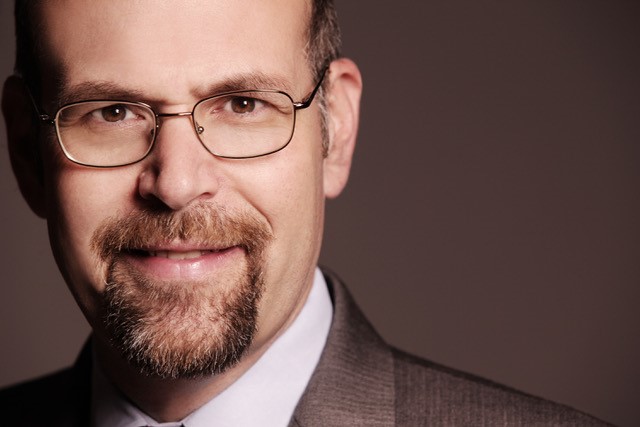 Ronald Drescher
Attorney, Drescher & Associates, P.A
Ronald Drescher
Attorney, Drescher & Associates, P.ARonald (Ron) Drescher has been practicing bankruptcy law in Baltimore, Maryland for 30 years, where he has become a valuable coach and mentor to lawyers new to the practice. Ron created the course Complete Bankruptcy to help prepare lawyers in anticipation of the tsunami of bankruptcies to come as a result of the COVID-19 pandemic. His sessions during the NextChapter Bankruptcy Week Summit were so popular, organizers needed to add two more sessions to handle overflow, with thousands registered for his talks. In addition to training other lawyers on the fundamentals of bankruptcy law, Ron also educates the public and other attorneys on the Uniform Commercial Code and the legal aspects of starting a business.
 Daniel Farris
Founder, Proxy and NMBL Technologies; Partner, K&L Gates LLP
Daniel Farris
Founder, Proxy and NMBL Technologies; Partner, K&L Gates LLPAs an IP attorney and partner, software engineer, and legal tech start-up founder, Daniel Farris is a triple threat, and has the resume of a quintessential Fastcase 50 honoree. However, unlike many in the space, Daniel's career started on the tech side. After working with in-house counsel at Argonne National Lab he decided to start a private legal practice. A few years into his practice Daniel started Proxy, a legal productivity tool that allows attorneys to manage tasks, workflows, and projects in a manner akin to the methods used in software development. Even better, it integrates with email, allowing busy attorneys to make informed decisions about prioritization and efficiency in their natural environment.
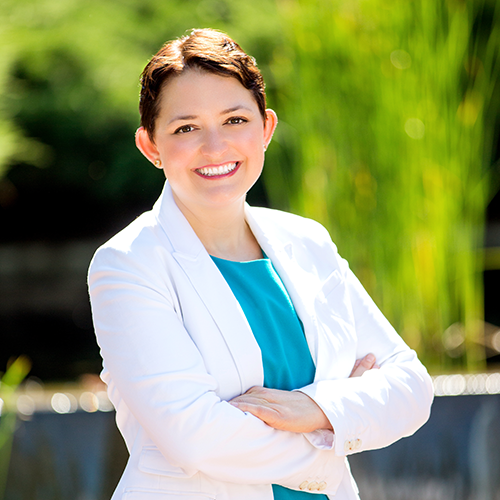 Alli Gerkman (In Memoriam)
Former Senior Director, The Institute for the Advancement of the American Legal System; Founder, Foundations for Practice at the University of Denver
Alli Gerkman (In Memoriam)
Former Senior Director, The Institute for the Advancement of the American Legal System; Founder, Foundations for Practice at the University of DenverIn September of 2019, the Colorado legal community lost a member whose impact simply cannot be measured. Alli Gerkman, who left us too soon at the age of 41, will be remembered for a legacy we would all be proud to accomplish if given twice the time. Alli led the Institute for the Advancement of the American Legal System (IAALS) at the University of Denver, which focused on ensuring that the judicial system mandated fair (and transparent) access to courts for all. Alli also founded Foundations for Practice, which trained law students on the necessary skills to secure full-time employment following graduation, regardless of previous experience or socioeconomic background. She may no longer be with us, but Alli will always be remembered as, in the words of her colleagues, "wicked smart", "a physical force", and a "magnet".
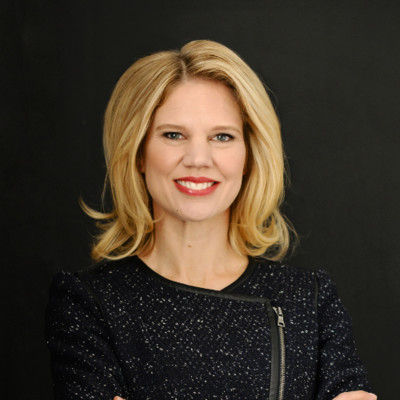 Cara Griffith
President and CEO, Tax Analysts
Cara Griffith
President and CEO, Tax AnalystsEnsuring that the world of tax law and policy is never taxing to the lawyer or layperson, Cara Griffith, the Editor-in-Chief of Tax Analysts, guarantees not a day passes without the public dissemination of all things relevant in the world of tax. Cara oversees numerous publications such as Tax Notes Today, State Tax Today, and Worldwide Tax Daily. Cara tirelessly dedicated herself to the field of tax analysis from an early point in her career, first by writing a weekly tax column before moving over to an unparalleled career in private practice at PricewaterhouseCoopers. Today Cara is leading one of the most trusted names in tax publishing through a digital transformation that leads the legal information industry.
Dave Harriman is the senior statesman of the legal publishing industry. He once served as President of the Michie Company, publishing statutes in a Charlottesville division of LexisNexis. He has some of the nation's deepest expertise in the editorial intricacies of statute publishing. Dave moved online at the dawn of the internet, taking the helm at National Law Library, one of the first pioneers of online legal research in the late 1990s. He later joined the team at Casemaker and worked to ensure that state bar associations and their members have access to high-quality legal research, a mission that aligns him well with this honor.
For generations, you could find Heins and Marmions at the helm of the William S. Hein & Co., one of the last independent legal publishers in America. The torch has been passed to a new generation of Heins and Marmions, with Shannon Hein and Shane Marmion (also recognized with a Fastcase 50 award this year) taking leadership positions in the company. Hein has made one of the most successful transitions from print to digital, and Shannon has led the company to make its products essential in law schools around the world.
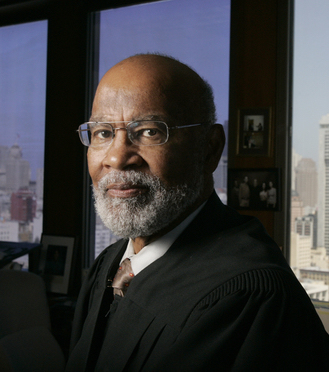 Hon. Thelton Henderson
Inactive Senior United States District Judge, United States District Court for the Northern District of California
Hon. Thelton Henderson
Inactive Senior United States District Judge, United States District Court for the Northern District of CaliforniaAs the first African-American lawyer at the DOJ's Civil Rights Division in the early 60's, Judge Thelton Henderson was fired for lending Martin Luther King his government rental car to make sure Dr. King could make the March on Selma (worried a bad tire would ultimately put King in danger if he got stranded). He became a trusted advisor to King, opened a legal aid office, helped diversify law schools, and spent 37 years as a federal judge. To this day Thelton continues to mentor at his alma mater Berkeley Law School ('62). On the federal bench, Thelton developed a powerful reputation for his judicial acuity and sensitivity. In 1986, he wrote the opinion in a case that first outlawed sexual harassment in California. In 1995, his lengthy ruling on dire conditions at Pelican Bay State Prison led to vital restrictions on the state's use of solitary confinement. In 2006, he ruled that the state was violating constitutional standards with deficient prison medical treatment and appointed a receiver to manage the prison health care system. Thelton has said of his career, "My passion focused on cases in which individuals were getting short-changed or were underdogs against a system that seemed stacked against them."
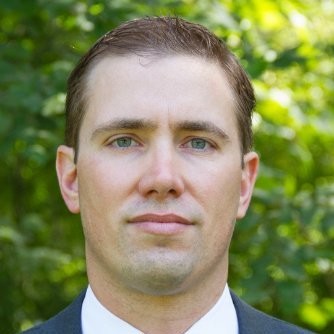 Shon Hopwood
Associate Professor of Law, Georgetown University Law Center
Shon Hopwood
Associate Professor of Law, Georgetown University Law CenterShon Hopwood's life story is one of redemption. A former serial bank robber, at the age of 23 Shon was sentenced to over 12 years in federal prison. What came next no one could have predicted: with no formal legal training, Shon became perhaps the most successful "jailhouse lawyer" in American history, with his first petition for certiorari (on behalf of another inmate) granted by the United States Supreme Court. With the help of attorney Seth Wexler, the case was ultimately decided in his client's favor 9-0. Upon release, Shon attended the University of Washington School of Law and clerked for D.C. Circuit Judge Janice Rogers Brown. He recently became a professor at Georgetown Law and sought-after keynote speaker, all the while advocating for prison and criminal justice reform. Shon's book about his experiences, Law Man, was met with critical success.
 Vasu Kappettu
COO and CTO, Justia
Vasu Kappettu
COO and CTO, JustiaFor two decades, Vasu Kappettu has been providing free and public access to the law. She is a founding member of Justia and leads the technology development as well as the innovation efforts for Justia's portal and client services products. Vasu does not seek the spotlight, but she has made integral contributions to Justia's goal of providing free access to the law. She has led major initiatives such as: case law, codes, regulation, dockets, and government documents projects - all resources that are made readily available via the internet to the public. Vasu has helped lead projects for Oyez.org, a Supreme Court focused non-profit, and she is an influential advisor to publishers such as Fastcase, Cornell's Legal Information Institute, and many other legal technology companies.
 Liz Keith
Program Director, Pro Bono Net
Liz Keith
Program Director, Pro Bono NetLiz Keith is a torch-bearer for social justice and the tech that supports it. She is committed to making legal aid more accessible through technology. During her 15+ years at Pro Bono Net she has managed strategic initiatives and programs that equip individuals and communities with new ways to solve civil justice issues. Some of those projects have included building the Immigration Advocates Network, Voting Rights Institute, and LawHelp.org. Liz and her team are currently partnering with Microsoft on building a Legal Navigator, which will help overwhelmed legal aid organizations use software to personalize and triage the needs of people who need legal help. Liz's work (and Pro Bono Net's) are a critical lever to scale scarce legal aid services to people who need them.
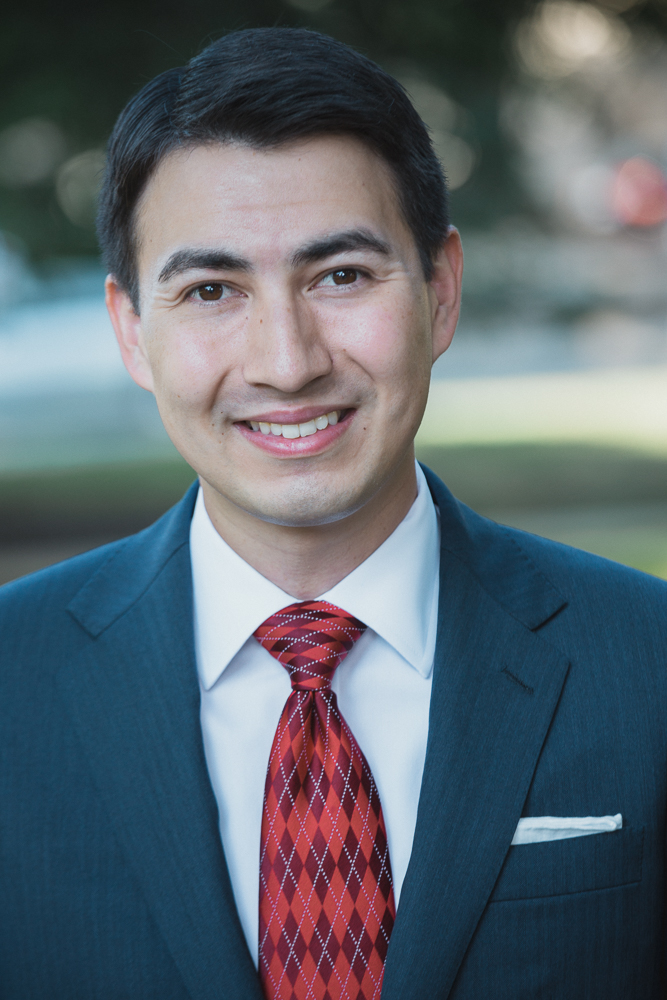 Jeff Kelly
Chair, Future of Law Committee, North Carolina Bar Association
Jeff Kelly
Chair, Future of Law Committee, North Carolina Bar AssociationJeff Kelly is working to #makelawbetter and bust the barriers of access to justice. In his role as the chair of the North Carolina Bar's Future of Law Committee, Jeff is using technology to create access to justice solutions and to connect legal learning with legal doing in law schools. In addition to his legal practice at Shanahan Law Group in Raleigh, Jeff co-founded a legal technology start-up through which he independently collects litigation data for legal analytics, risk assessment, and legal project management.
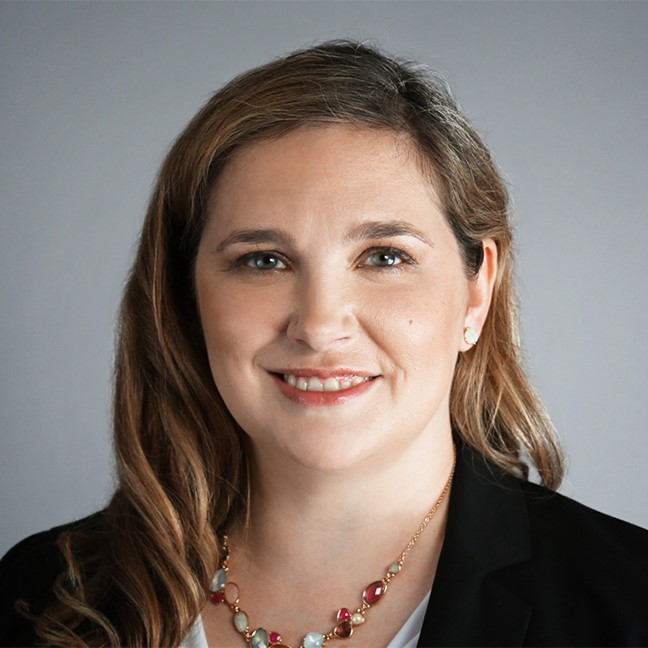 Diana Koppang
Director of Research & Competitive Intelligence, Neal, Gerber & Eisenberg LLP
Diana Koppang
Director of Research & Competitive Intelligence, Neal, Gerber & Eisenberg LLPDiana Koppang is a law librarian made to lead. It's not just her encyclopedic knowledge of legal research services and techniques, it's her passion for them. In addition to leading a team of research analysts at Neal Gerber, Diana has held numerous board and chair positions at the AALL, Ark Group, PLLIP, PIUG, and other legal technology groups. Most recently, she and her team led a group of researchers to create the most comprehensive analysis of legal analytics platforms available. Analytics services vary widely, and comparing them can be like comparing apples and oranges in six dimensions, but the survey Diana led for AALL admirably compared the services across all of them. Diana also dedicates countless hours to providing technology to legal aid agencies in Chicago advocating for tenants' rights.
 Steven Lofchie
Partner, Cadwalader, Wickersham & Taft LLP; Founder, Cadwalader Cabinet
Steven Lofchie
Partner, Cadwalader, Wickersham & Taft LLP; Founder, Cadwalader CabinetAfter a career in BigLaw, many partners begin to look back on their legacy, but Steven Lofchie continues to look forward. Steven has had a storied career advising clients in the financial services sector, including writing Lofchie's Guide to Broker-Dealer Regulation, a leading treatise. Always innovating, Steven recently forged a path into the digital era by building a research database focused on the financial services center: the Cadwalader Cabinet. The Cabinet offers detailed regulations with commentary, practical client advice, and case law updates all in one place. The Cadwalader Cabinet is setting a new standard for regulatory research tools, putting financial services regulatory research and advice into a format that is both comprehensive and easily digestible. It is also notable for being a client-facing technology product built within a large law firm, not a common or easy feat. With a maker's mentality, Steven has created the kind of new legal service that firms can create for clients in an era of data-driven law.
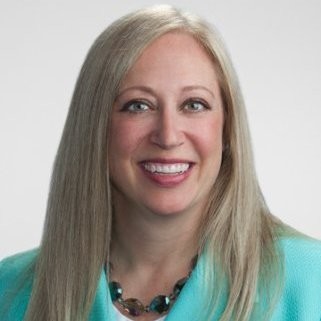 Catherine Alman MacDonagh
CEO and Founder, Legal Lean Sigma Institute LLC
Catherine Alman MacDonagh
CEO and Founder, Legal Lean Sigma Institute LLC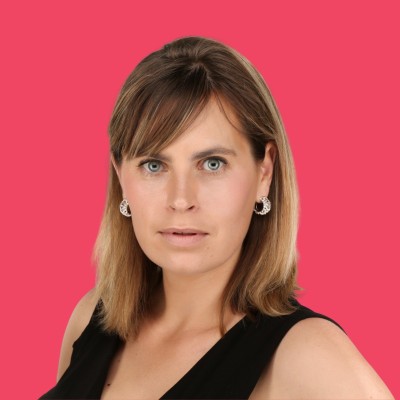 Olga Mack
CEO, Parley Pro
Olga Mack
CEO, Parley ProOlga Mack is the CEO of Parely Pro, a next-generation, collaborative contract management software company. Parely Pro, under Olga's leadership, has pioneered online technology focused on improving all aspects of contract negotiations. Olga's work is focused on making the legal profession more resilient and more inclusive through technology. Outside of her dedication to promoting legal tech, including speaking at TEDxSanFrancisco and writing numerous articles in Bloomberg Law, Above the Law, and Newsweek, Olga co-founded SunLaw, an organization dedicated to preparing women in-house attorneys to become general counsels and legal leaders, and WISE, which helps women firm partners become "rainmakers". Additionally, Olga is a blockchain specialist who has served as Vice President of Strategy at Quantstamp, a security auditing blockchain platform. Prior to Parely Pro, Olga was General Counsel at ClearSlide, and worked at Visa, Yahoo, and Wilson Sonsini Goodrich & Rosati.
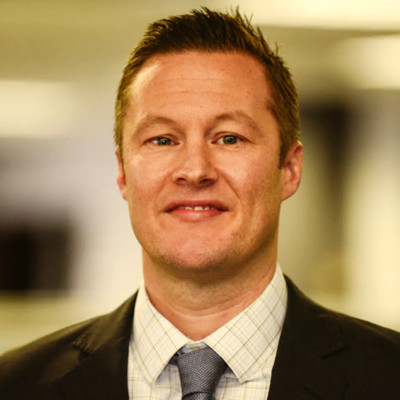 Shane Marmion
President, William S. Hein & Co. Inc.
Shane Marmion
President, William S. Hein & Co. Inc.A legal publisher, Shane Marmion is president of William S. Hein & Co., the world's largest legal periodical distributor, providing tools for research in law, political science, and international relations. At Hein, Shane has led engineering efforts to modernize the HeinOnline platform. Shane was influential in organizing more than 8,000 profiles for professors to connect legal authors with articles and to allow researchers to find similar authors. Shane served the company as Vice President of Product Development beginning in 1996. He has worked to bring co-authors together through ranking metrics, and has had a hand in producing many new features for the company's database, which is used in law libraries and academic institutions worldwide.
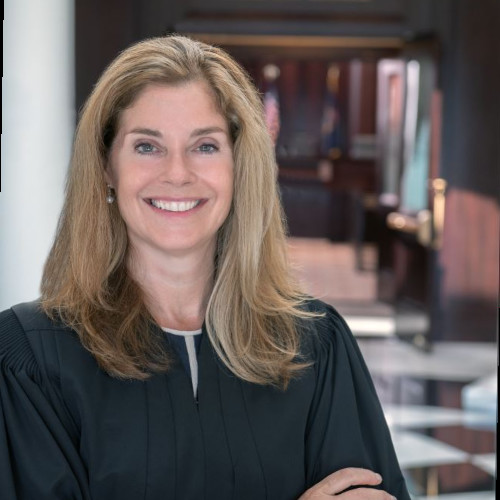 Hon. Bridget Mary McCormack
Chief Justice, Michigan Supreme Court; Co-Chair, Michigan Post-Pandemic Planning Technology Workgroup
Hon. Bridget Mary McCormack
Chief Justice, Michigan Supreme Court; Co-Chair, Michigan Post-Pandemic Planning Technology WorkgroupMichigan's Chief Justice Bridget Mary McCormack has been one of courthouse technology's greatest advocates since she took the bench in 2012. While courts across the country grappled with how to best conduct business during the COVID-19 pandemic, the Chief Justice has been outspoken about embracing the lessons learned during the crisis and insisted courts must make the "commitment to innovation in our new normal", especially in the area of criminal justice. With the help of Bridget's leadership, Michigan has adopted several online systems, such as michiganlegalhelp.org and MI-Resolve (online mediation and dispute resolution), and continued to hold 200,000+ hours of court proceedings throughout the pandemic using Zoom and its Virtual Courtroom Directory, which allows court to easily be viewed from anywhere.
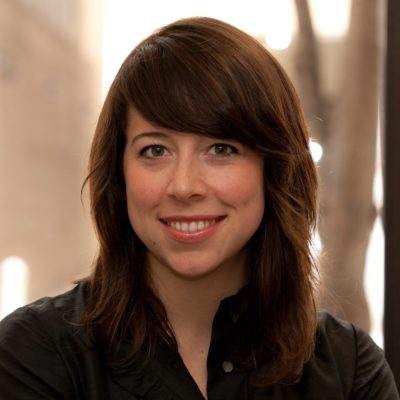 Erie Meyer
Technology Advisor for Commissioner Rohit Chopra, Federal Trade Commission; Co-founder, Tech Ladymafia
Erie Meyer
Technology Advisor for Commissioner Rohit Chopra, Federal Trade Commission; Co-founder, Tech LadymafiaAs the first-ever technology advisor at the Federal Trade Commission (FTC), Erie Meyer is a trailblazer for the tech industry, and an icon for women in tech. Erie, with co-founder Aminatou Sow, created Tech Ladymafia as a space for women in tech to build their own networks. The membership-based group is increasing the visibility of women working in technology. Prior to Erie's work on consumer protection issues in tech, she co-founded U.S. Digital Service, an elite technology unit housed within the Executive Office of the President that provides consultation services to federal agencies on information technology. Erie has been shattering glass ceilings and paving the way for women in tech since she began her career in the federal government as a founding member of the Tech + Innovation team at the Consumer Financial Protection Bureau during the Obama Administration.
 Teresa Miguel-Stearns
Director, Daniel F. Cracchiolo Law Library at The University of Arizona James E. Rogers College of Law
Teresa Miguel-Stearns
Director, Daniel F. Cracchiolo Law Library at The University of Arizona James E. Rogers College of LawTeresa Miguel-Stearns is a law library polymath. She recently became Director of the Law Library at The University of Arizona after 15 years in various positions at the Lillian Goldman Law Library at Yale Law School. Teresa is the co-founder and creator of ALLStAR Benchmarking, a leading data collection and analysis tool for U.S. academic law libraries. She and the ALLStAR team were awarded the American Association of Law Libraries' "Innovations in Technology Award" for 2020. Teresa led a team of librarians to create Global Online Access to Legal Information (GOALI), part of a public-private partnership that delivers licensed research and scholarship to institutions in developing countries at low or no cost (the name may reference that Teresa is also a professional soccer player and referee). In addition, Teresa founded SELA Bibliotecarios, an annual meeting of Latin American law librarians, with the goal of creating a network of law librarians throughout Latin America and increasing the profile of law librarians and the profession of librarianship throughout the region.
 David Miranda
Partner, Heslin Rothenberg Farely Mesiti; Former President, New York State Bar Association
David Miranda
Partner, Heslin Rothenberg Farely Mesiti; Former President, New York State Bar AssociationDavid Miranda is like the traffic guard in the middle of a 4-way stop sign intersection when a new stoplight is getting installed. His work in intellectual property law includes some of the earliest domain name dispute proceedings before the World Intellectual Property Organization and one of the first New York cases deciding the enforceability of online agreements. He has even arbitrated disputes about trademarks of Fortune 100 companies like Amazon, Target, and McDonald's. David served as President of the New York State Bar Association (NYSBA) from 2015 to 2016. During his term, he focused on integrating technology into the practice of the largest voluntary bar association in the United States. He hosts the NYSBA podcast Miranda Warnings, where he discusses, among other things, how technology impacts the profession.
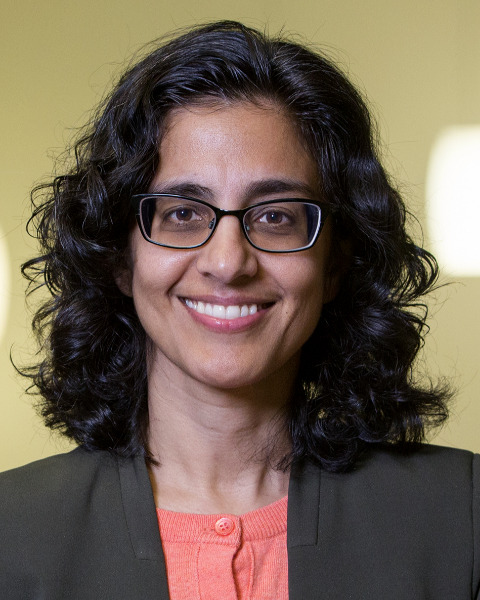 Kim Nayyer
Edward Cornell Law Librarian and Associate Dean for Library Services, Cornell Law
Kim Nayyer
Edward Cornell Law Librarian and Associate Dean for Library Services, Cornell LawKim Nayyer is a champion for equal access to legal information. She is the Edward Cornell Law Librarian and Associate Dean for Library Services at Cornell Law School. Kim previously held positions at the University of Victoria in Canada, both as Associate University Librarian and an adjunct professor. She remains active in a number of organizations, including the Canadian Association of Law Librarians (CALL/ACBD), of which she is the Vice President. Previously, Kim founded the Diversity, Inclusion and Decolonization Committee, a response to the Calls to Action provided by Canada's Truth and Reconciliation Commission. The membership of CALL/ACBD unanimously approved the creation of the committee and its mandate. Kim also advocated on behalf of CALL/ACBD before the Supreme Court of Canada in favor of greater access to legal information.
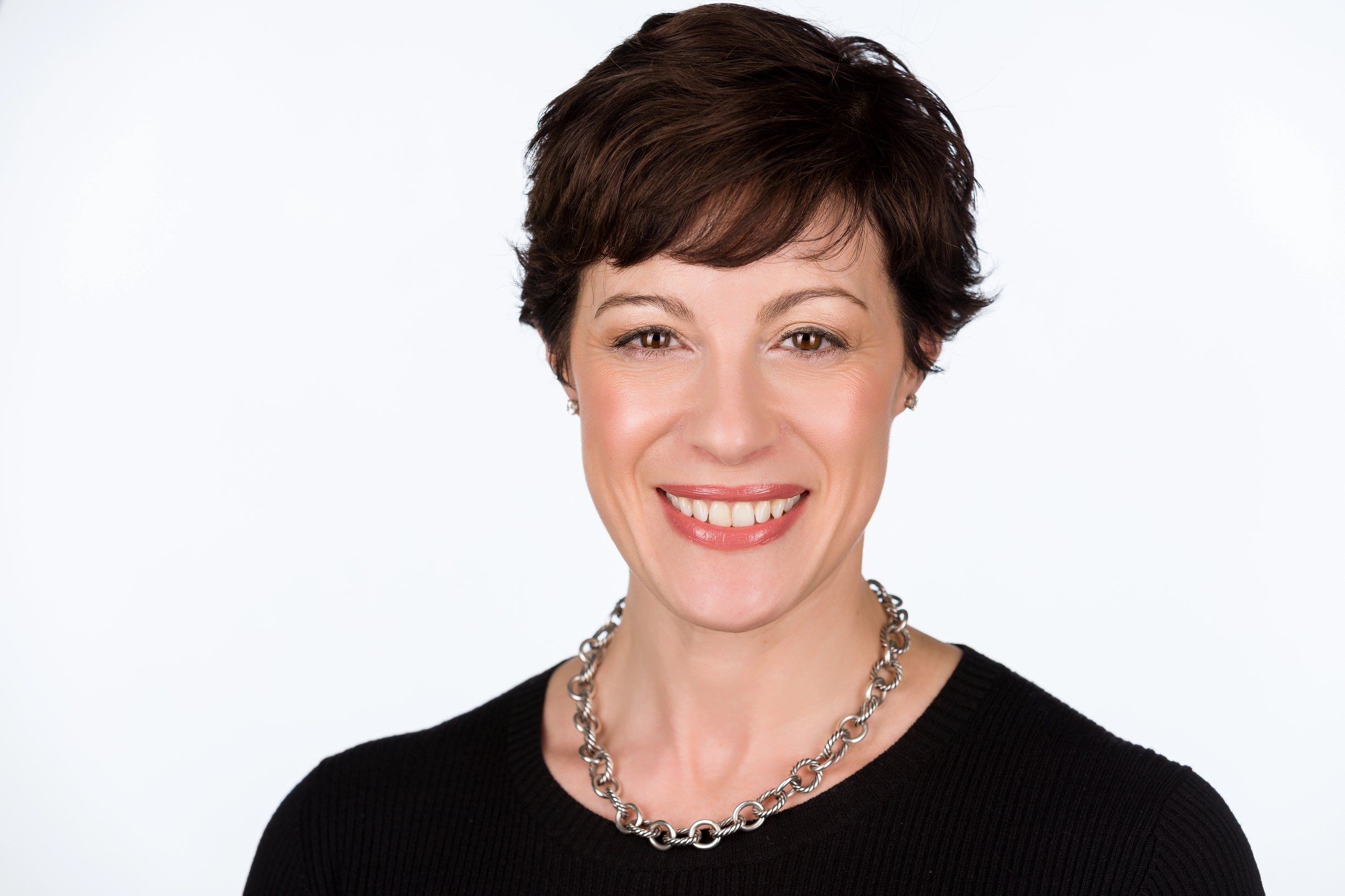 Kara O’Brien
Vice President, Programs, Practising Law Institute
Kara O’Brien
Vice President, Programs, Practising Law InstitutePLI has long offered solid educational programs and resources for attorneys, but during the COVID-19 pandemic the organization took their wealth of knowledge to new heights, in no small part due to Kara O'Brien's efforts. With Kara as program director, PLI has firmed up its classes and services directed toward the representation of legally under-served communities when it matters most. Just to name a few examples, the PLI calendar includes sessions on pro bono practice in administrative hearings, New York City housing law for low income communities, and issues in the representation of veterans. Added to these is a timely program on voting rights. As needs resulting from the pandemic continue to arise, we know Kara and her team at PLI will be ready to prepare attorneys for the challenges ahead.
 Ian O’Flaherty
Founder and CEO, LIT Software LLC
Ian O’Flaherty
Founder and CEO, LIT Software LLCSince the dawn of the iPad, software developers have sought to find ways to harness the tablet's intuitive interface for use in the courtroom. Few have been as successful as Ian O'Flaherty and his company Lit Software, creators of the litigation apps TrialPad, TranscriptPad, and DocReviewPad. Ian's experience as a trial attorney and trial presentation consultant were integral when Ian and his team began creating apps for legal workflows. Lit Software's suite remains a favorite for presenting and organizing the complex webs of facts and data in trial advocacy. Their apps have saved firms countless hours and dollars during the often tedious tasks of reviewing transcripts and documents to eventually present information in a digestible way for juries and judges.
 Farrah Pepper
Chief Legal Innovation Counsel, Marsh & McLennan Companies
Farrah Pepper
Chief Legal Innovation Counsel, Marsh & McLennan CompaniesFarrah Pepper is a legal innovator whose impact on the industry began with her early days as a pioneer in electronic discovery. She founded the e-discovery practice group at Gibson Dunn and has led General Electric's award-winning discovery team. Throughout her career, Farrah has been finding ways to use technology and data to improve results for legal teams. In her current role at Marsh & McLennan Companies, Farrah created the firm's Legal Innovation Lab, designed to keep the organization at the cutting edge of legal technology by exploring new technologies using analytics, AI, and even crowdsourcing. Outside of her firm, Farrah is a frequent speaker and writer on legal technology topics and is the leader of the New York chapter of the Corporate Legal Operations Consortium.
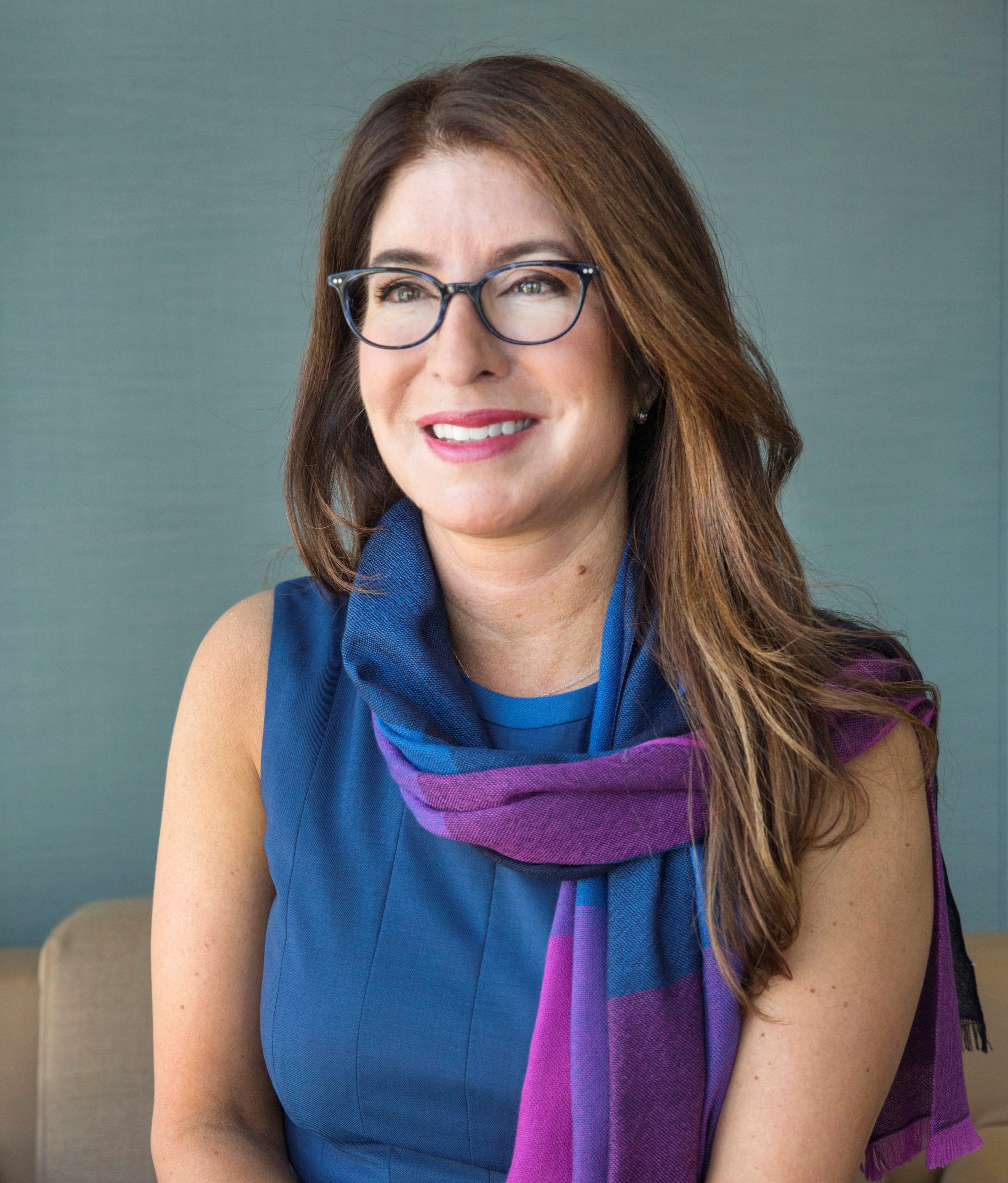 Natalie Pierce
Partner and chair of Labor & Employment, Gunderson Dettmer
Natalie Pierce
Partner and chair of Labor & Employment, Gunderson DettmerNatalie Pierce is a Partner and chair of Gunderson Dettmer’s Labor & Employment practice and has rich experience guiding technology, life sciences, and other high growth companies from startup through their lifecycles. During the COVID-19 pandemic many companies have put greater focus on implementing AI, robotics, and other technologies to keep employees safe and to assist with remote operation. Widely recognized for her expertise, Natalie has been awarded "AI Lawyer of the Year" in California by the Daily Journal, and received national awards from Chambers' "Minority Lawyer of the Year", and "Best Mentor" in American Lawyer's 2019 Industry Awards. In her prior role at Littler, Natalie was well known for her mentorship and advocacy for diversity and inclusion, Co-Chairing the firm’s Diversity and Inclusion Council, as well as co-hosting programs at Google, Facebook, and Intel.
 David Pinke
Product Owner, Digital Online, Practising Law Institute
David Pinke
Product Owner, Digital Online, Practising Law InstituteAvid skier and baker of bagels, Dave Pinke is PLI's Digital Online Product Owner, who, with the greater PLI team, has recently transformed the PLI training and CLE website to make it more intuitive and accessible. Dave developed the Credit Tracker, which is helping tens of thousands of attorneys and CPAs track their state's CLE and CPE credits to conform to each state's requirements. Dave's leadership, along with his mighty team, is helping PLI transform the business model and has positioned PLI to take on the challenges of remote learning and remote work simultaneously.
 Basha Rubin
CEO, Priori Legal
Basha Rubin
CEO, Priori Legal David Shapiro (In Memoriam)
Professor of Law, Harvard Law School
David Shapiro (In Memoriam)
Professor of Law, Harvard Law SchoolOften cited as the heart and soul of Hart and Wechsler's The Federal Courts & the Federal System (Foundation Press), David Shapiro joined the faculty at Harvard Law School in 1963 after briefly working at Covington & Burling LLP and clerking for Supreme Court Justice John M. Harlan. David served as the Deputy Solicitor General under both the Reagan and Bush administrations, but will be best remembered as a longtime professor at Harvard Law School, teaching federal courts to an impressive list of litigators and academics who proudly count him as a mentor. His passing in 2019 reminded all he touched to reflect on his lasting impact to legal jurisprudence, as well as his expertise and passion for legal process. Anyone who knew David would also note his humor. "One new edition of Hart and Wechsler, David trimmed upwards of a 100 pages from the volume," notes Fastcase COO and former Foundation Press publisher, Steve Errick. "I come into his office and he's shaking his head telling me all his work in trimming the book to a more elegant size was in vain as the book looked just as thick as the prior edition. When I showed him we used the trimming of text to use better paper, he smiled and nodded. And that was that."
 Brad Smith
President and Chief Legal Officer, Microsoft
Brad Smith
President and Chief Legal Officer, MicrosoftBrad Smith is perhaps best known for his work as President of Microsoft, alongside a concurrent role as Chief Legal Officer, but he has served as General Counsel since 2002 and led the company through the tenure of three CEOs. It's not an exaggeration to say that Brad Smith has seen it all. As General Counsel, Brad has championed diversity within the firm, successfully pushing the executive level to refuse bonuses unless the firm met annual diversity goals. Under Brad's guidance, the company, perhaps the most venerable in Big Tech, has advocated for nuanced action on facial recognition since 2018, before the current reckoning over the use of that technology in the law enforcement space. His book Tools and Weapons is a guide to the ethical use of technology, from digital privacy and surveillance to cybersecurity and artificial intelligence - fields where Brad Smith has been a pioneer and leader.
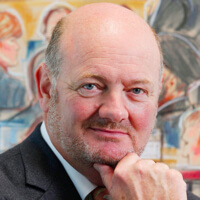 Graham Smith-Bernal
Founder and CEO, Opus 2
Graham Smith-Bernal
Founder and CEO, Opus 2Graham Smith-Bernal is the Mark Zuckerberg of British legal tech. Both young entrepreneurs dropped out of school and within a few years had revolutionized the way people communicate. Zuckerberg made codes that made social media social and Graham created technology that made the legal industry more digital. Graham left high school at 16 for a job as a court reporter and by age 24 he had created the UK's biggest court reporting agency. He then devised one of the world's first computerized court reporting and evidence management services, LiveNote, which became the widest used litigation support software. Although he retired briefly, Graham returned to the legal field in 2008 when he founded Opus 2, a London-based company that provides a cloud-based collaboration tool for lawyers, judges, and others to connect. Graham continues to alter the industry via technology, this time by helping courts and law firms to eradicate most of their dependency on paper documents by digitizing all elements of the legal process in easy to use technology.
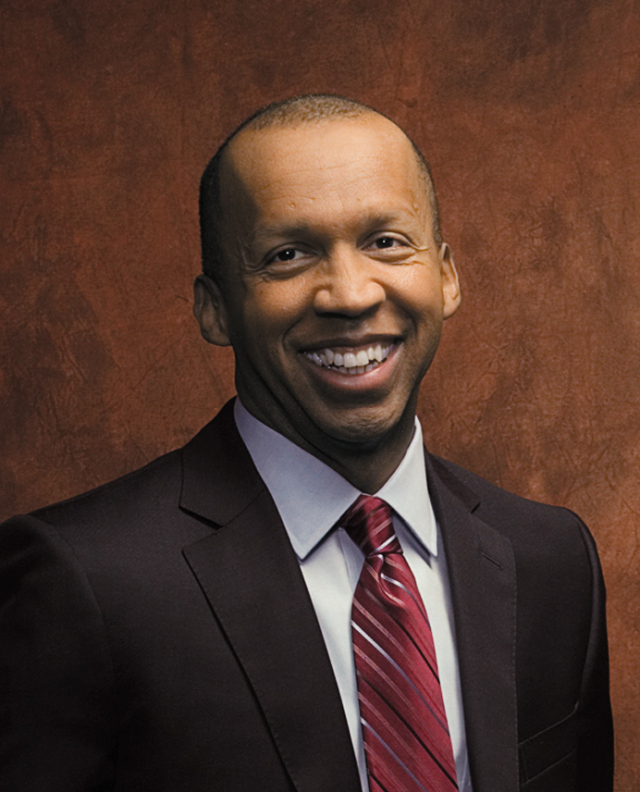 Bryan Stevenson
Founder and Executive Director, Equal Justice Initiative; Clinical Professor, New York University School of Law
Bryan Stevenson
Founder and Executive Director, Equal Justice Initiative; Clinical Professor, New York University School of LawAs a longstanding and leading figure in the American redemptive justice conversation, attorney and activist Bryan Stevenson has become the face of the movement to improve access to justice and equal treatment under the law. Bryan began his career at the Southern Center for Human Rights, a death penalty defense organization that he eventually led. When Congress cut funding for death penalty defense, Bryan transformed the organization into the non-profit Equal Justice Initiative (EJI). A major focus of Bryan's work at the EJI has been fighting the application of harsh sentencing on minors impacted by poverty and racial discrimination. For instance, Bryan was fundamental to a 2012 U.S. Supreme Court decision that effectively banned mandatory life imprisonment without parole for those 17 years old and younger. EJI's work has also resulted in the release of over 135 wrongfully condemned death row prisoners. Bryan's memoir, Just Mercy, was recently adapted into a film that has been screened for free in classrooms throughout the country, and Bryan has been an effective speaker around the nation in advocating for a more just justice system.
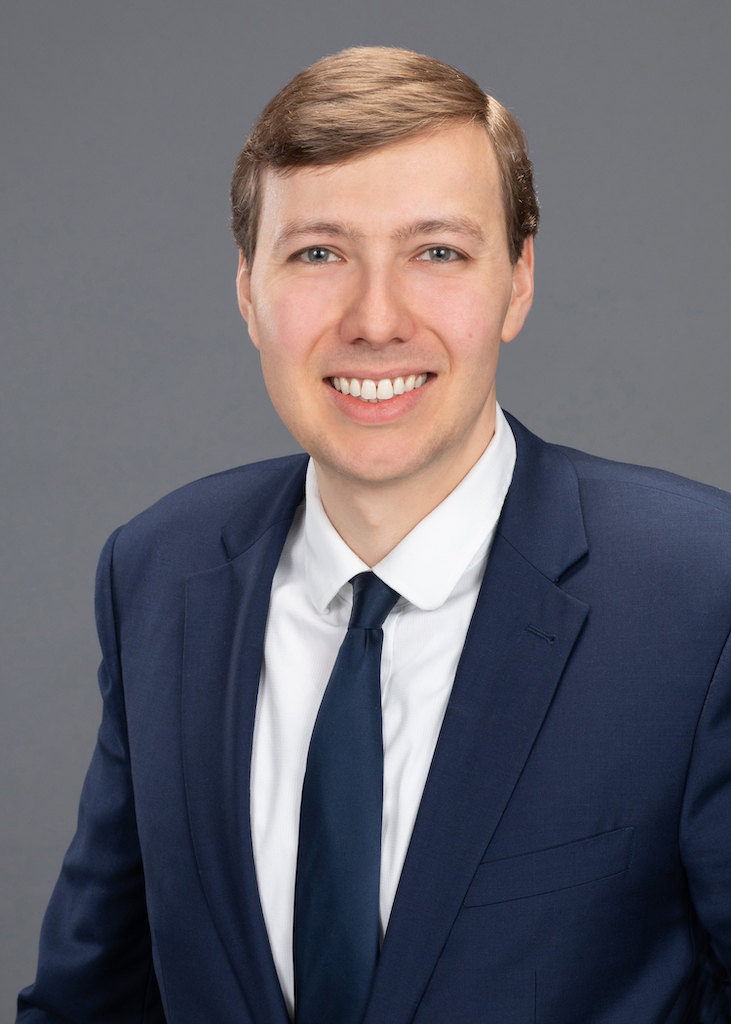 Matthew Stubenberg
Associate Director of Legal Technology, Access to Justice Lab, Harvard Law School; President, MDLegal Apps
Matthew Stubenberg
Associate Director of Legal Technology, Access to Justice Lab, Harvard Law School; President, MDLegal AppsMatthew Stubenberg's career as a young legal aid lawyer and technologist has left a whirlwind of products and services in his wake, all focused on making Maryland's legal systems easier to navigate and analyze for data trends. His creations include "Not Guilty App" and MDExpungment.com, which has been used to print more than 100,000 expungement forms since it first launched four years ago. Matthew also spearheaded the CLUE program, which helps scrape Maryland public court records for the Maryland Volunteer Lawyers Service and allows pro bono and criminal defense lawyers to search data in ways never thought possible. This data has been used in support of defending clients, large scale reform measures, and other policy initiatives. Matthew's commitment to technology in the service of the greater good makes him more than deserving of a Fastcase 50 nod, and surely many other accolades to come as he continues his work at Harvard Law's Access to Justice Lab.
 Hon. John Tran
Judge, Fairfax County Circuit Court
Hon. John Tran
Judge, Fairfax County Circuit CourtJudge John Tran has stayed ahead of the curve on electronic courtroom technology, and his forward-thinking is now paying dividends. As the COVID-19 pandemic has forced courtrooms to lean on tech across the country, John has stepped up to help teach others about the tools needed to maintain operations. He has taught video conference software to lawyers and has become the go-to source for remote hearing expertise. John became a Judge in Fairfax, VA in 2013 and is the first Asian-American Judge in Virginia history. He was born in Vietnam and is the son of a South Vietnamese diplomat. He came to Virginia while in High School and received his law degree from George Washington University
 Cathy Underwood
Freelance Legal Editor
Cathy Underwood
Freelance Legal EditorTo say Cathy Underwood is all about family is an understatement, and, for her, family comes in many different forms. Family is not just her blood, but also the legal family she has built through the Arkansas Bar Association over her long career as a freelance legal editor and paralegal studies instructor. For decades, Cathy has worked tirelessly with the Arkansas Bar to bring technology competence front-of-mind for members, by utilizing Fastcase and ArkBar Docs. In addition, she has been indispensable to the bar’s publications program as a whole, with it’s growing library of both print and digital products. Cathy not only ensures members are comfortable with the tools that are put in front of them, but that they will succeed and become better attorneys for their clients.
 Shoba Sivaprasad Wadhia
Associate Dean for Diversity, Equity, and Inclusion, Penn State Law; Samuel Weiss Faculty Scholar and Clinical Professor of Law; Director, Center for Immigrants' Rights Clinic
Shoba Sivaprasad Wadhia
Associate Dean for Diversity, Equity, and Inclusion, Penn State Law; Samuel Weiss Faculty Scholar and Clinical Professor of Law; Director, Center for Immigrants' Rights ClinicProfessor Shoba Sivaprasad Wadhia is a leading voice in American immigration policy and the Editor-in-Chief of the American Immigration Lawyers Association Law Journal. Her research on prosecutorial discretion as it relates to factors such as race and national security has been published in more than thirty law reviews and two books, and her work has been cited by several federal appellate court decisions. Outside of her writing and scholarship, Shoba is the Founder and Director of Penn State Law's Center for Immigrants' Rights Clinic (CIRC), helping individuals and families navigate fast-changing immigration policy, including work preparing asylum seekers for interviews at federal family detention facilities.
 Noah Waisberg
CEO, Kira Systems
Noah Waisberg
CEO, Kira SystemsAmazon introduced the world to Alexa. Noah Waisberg is introducing the legal world to AI-based contract analysis. Kira Systems is providing law firms and corporations with software to assist with contract analysis in the key areas of leases, deals, due diligence, compliance, and finance. Its contract analysis software uses lawyer-trained artificial intelligence to scan contract documents for key terms and information relevant to the task at hand. The Kira System has redesigned and revolutionized how attorneys and companies review and analyze contracts. Noah helped grow Kira Systems from a two-person operation (alongside co-founder Alexander Hudek), to more than 120 employees within a few years of operation.
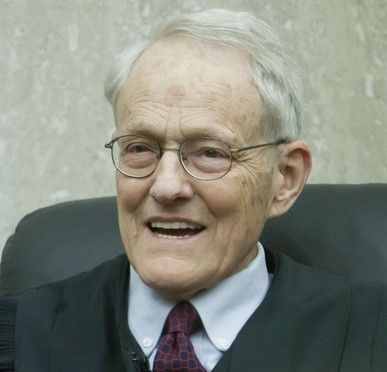 Hon. Stephen Williams (In Memoriam)
Senior Judge, U.S. Court of Appeals for the D.C. Circuit
Hon. Stephen Williams (In Memoriam)
Senior Judge, U.S. Court of Appeals for the D.C. CircuitMany lives were lost in 2020 to COVID-19, including D.C. Circuit Senior Judge Stephen Williams on August 8. The Judge's clerks remember him as a "giant of administrative law", and one of the longest-serving judges on the D.C. Circuit. President Ronald Reagan named Stephen to the court in 1983, and although he took senior status in 2001, he continued to hear cases on the court until his death. He had taught at the University of Colorado School of law, and was the author of several books and law review articles. Stephen heard some of America's highest-stakes cases during his tenure, and educated an entire generation of appellate advocates who appeared in his courtroom or served as his clerks.
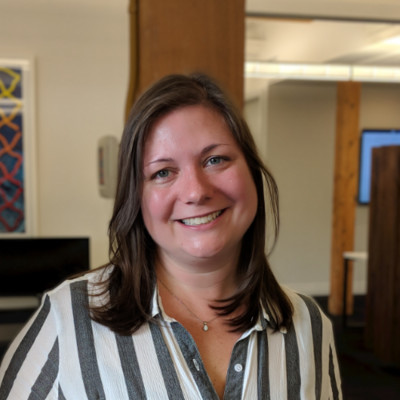 Natalie Worsfold
Co-Creator, CounterMeasure; Product Manager, Counter Tax Lawyers
Natalie Worsfold
Co-Creator, CounterMeasure; Product Manager, Counter Tax LawyersNatalie Worsfold is a fierce fighter when it comes to tax controversies. She earned a law degree and Lean Six Sigma Certification, then hung a shingle and worked as a tax lawyer before joining Counter Tax Lawyers, a tax controversy and litigation firm. Natalie is the co-creator of CounterMeasure, a litigation analysis tool that improves case analysis and modifies how clients and professionals make calculated and informed decisions. She is the co-architect behind many of Counter's process workflows, software and data analytics systems, as well as its comprehensive knowledge base (lovingly named Hank). She's considered the “secret weapon – happiest when elbow-deep in evidence, meticulously building creative solutions to seemingly impossible problems. Because the fact is Natalie sees things that other people don’t.”
 Bob Young
Founder, Lulu Press
Bob Young
Founder, Lulu PressWhat do Canada, antique typewriters, and open access to knowledge have in common? The correct answer is Bob Young, founder of Lulu Press. Lulu revolutionized the way creators and seekers of knowledge come together by using open source tech to give authors easy tools to create and disseminate books without massive paywalls. Bob proudly asserts that Lulu.com welcomes the creation of all books, whether they sell more than one million or fewer than one thousand copies. The end result is this beautiful world where everyone can afford to publish written works, regardless of financing. With creations from 225 countries and in five languages, Bob guarantees to keep Lulu strong with its promise that "anyone with a book to print can create on Lulu without paying a penny upfront. We believe in creating something that inspires you."
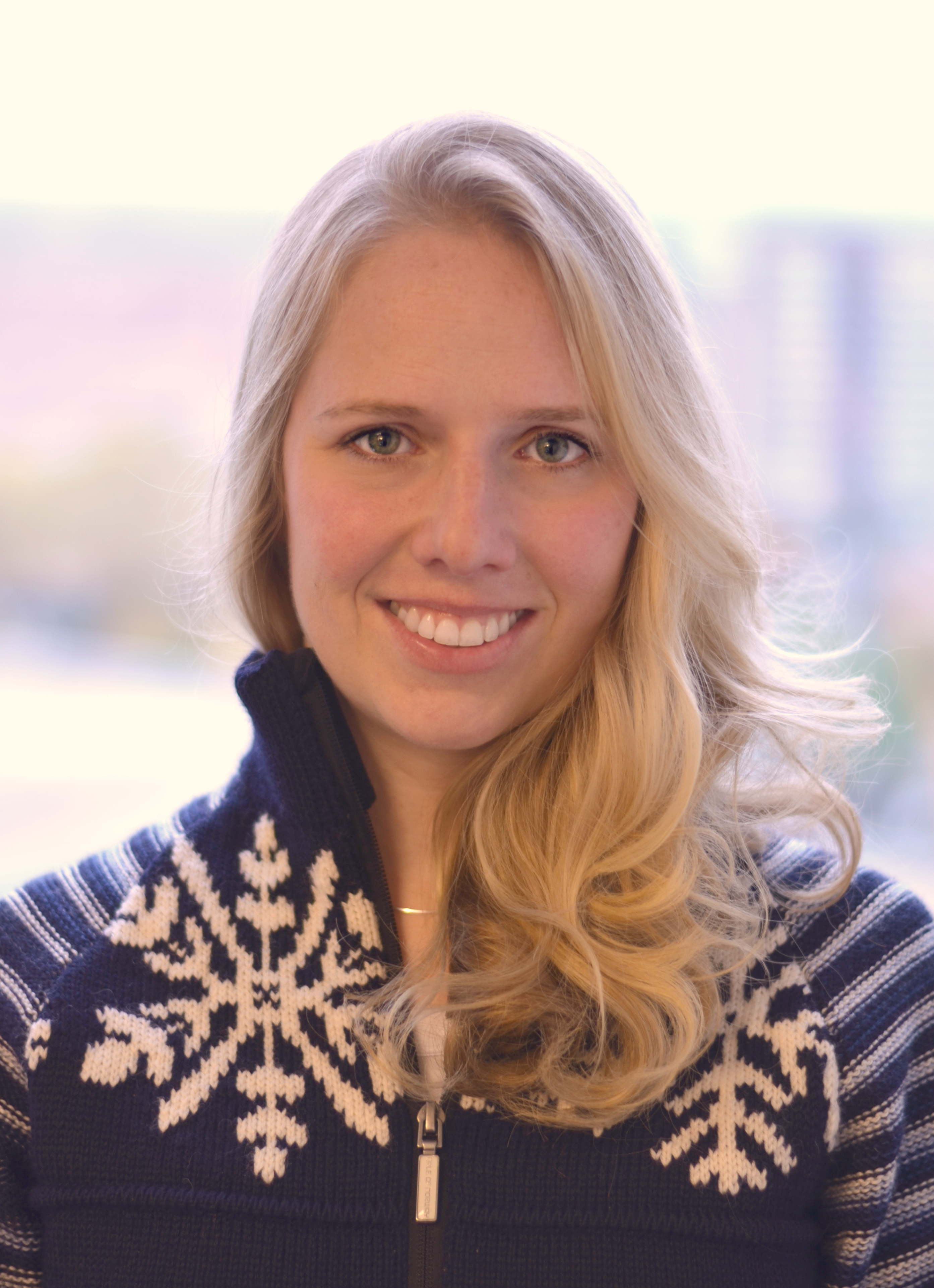 Rachel Zahorsky
Director of Marketing and Senior Leader, Novus Law LLC
Rachel Zahorsky
Director of Marketing and Senior Leader, Novus Law LLCRachel Zahorsky does groundbreaking communications work centered around the future of legal practice. She is currently the Director of Marketing and a Senior Leader for Novus Law, a global legal services firm, where she works with marketing, media content, and new business strategies. Rachel is a 2020 Fellow-Elect of the College of Law Practice Management. Her roots are in the reporting profession, having previously worked for the ABA journal as its first business of law reporter, where she helped create a column that used data and infographics to display the legal industry. Rachel wrote award-winning pieces for ABA Journal's Paradigm Shift in-depth feature series, which discussed the future of the legal profession. She is known for her cross-channel reporting using video, podcasts, live-streaming, and other features to build her work.

Winner of the prestigious American Association of Law Libraries (New Product) Award, Fastcase for iOS, Android, and Windows Phone is used by more attorneys than any other legal app according to the ABA. Anyone may use the app for free to access Fastcase's comprehensive legal research database on the go.